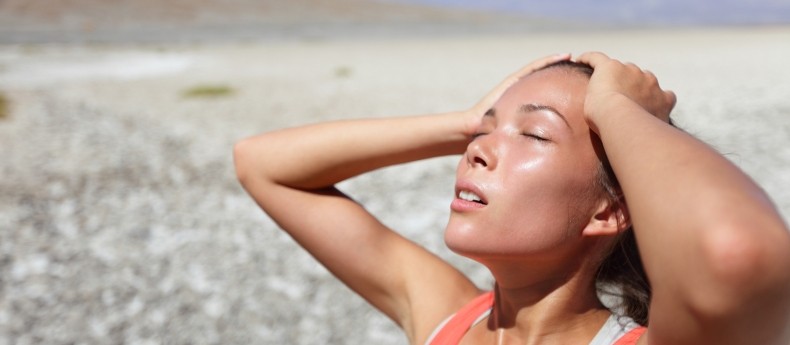
Ask an Expert – Heat Stroke
Question: It is hot, hot, hot! Are there any summer health concerns I should be made aware of?
Dr. Joseph Chang, Chair of Emergency Medicine, gives his answer…
As the summer months in Shanghai are famous for their extreme heat and humidity, it is important to know how to stay cool. The primary medical concern as a result of hot weather is heat stroke. It is a condition that occurs when people’s bodies get too hot and the central nervous system malfunctions. It is common when exercising in very hot and humid weather without drinking enough liquids (known as exertional heat stroke), but also occurs in anyone exposed to heat for too long (especially young children) and people with underlying chronic medical conditions (also known as classic heat stroke). Without timely and proper treatment, heatstroke can lead to death.
The most common early signs of heat stroke are heat cramps and heat exhaustion. Heat cramps cause painful muscle cramps; heat exhaustion results in headaches, dizziness, nausea or vomiting, and makes you very thirsty or tired. Other symptoms of heat stroke include: a body temperature in excess of 40ºC (104ºF); warm, red skin; a fast heart rate and rapid breathing; confusion; hallucinations; difficulty walking; seizures; or fainting.
Infants, the elderly (over 65 years of age), athletes, and outdoor workers are most at risk for heat stroke. The highest fatality rates from heat-related illness are in the elderly population, and adults with chronic medical illnesses. Risk factors include: cardiovascular diseases; substance abuse; obesity or diabetes; cognitive disabilities; those taking medications that can impede thermoregulation; and individuals without home air conditioning, especially those with any of the above conditions.
If you experience any of the above symptoms, you should cool your body down immediately by moving into the shade or air-conditioned room, taking a cool shower, drinking non-alcoholic or caffeine-free fluids, and removing extra clothing. I also recommend placing a cool cloth on the back of the neck and sitting in front of a fan.
Thankfully heat stroke is preventable. When the weather is hot and/or humid, stay hydrated by drinking plenty of fluids; water and sport drinks are best. Do not over-expose yourself to hot and humid environments (such as a hot car). Wearing loose, light-weight clothing and avoiding layering is also a smart move. If you have to exercise, try to do it early in the day—before it gets too hot—and take frequent breaks. And on hot summer days please use your air conditioner!
Heat stroke is a medical emergency. If you or someone you are with shows signs of heat stroke, it is extremely important to seek medical help immediately.
Copyright United Family Healthcare 2018 All right reserved ICP 京ICP备13017554号-4



